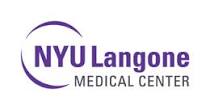RO4929097 in Treating Patients With Stage IIIB, Stage IIIC, or Stage IV Melanoma That Can Be Removed by Surgery
| Status: | Archived |
|---|---|
| Conditions: | Skin Cancer |
| Therapuetic Areas: | Oncology |
| Healthy: | No |
| Age Range: | Any |
| Updated: | 7/1/2011 |
| Start Date: | September 2010 |
A Pilot Trial to Evaluate the Molecular Effects of RO4929097 as Neoadjuvant Therapy for Resectable Stage IIIB, IIIC or IV Melanoma
RATIONALE: RO4929097 may stop the growth of tumor cells by blocking some of the enzymes
needed for cell growth.
PURPOSE: This phase II trial is studying how well RO4929097 works in treating patients with
stage III , or stage IV melanoma that can be removed by surgery.
OBJECTIVES:
Primary
- Evaluate the molecular effects of Notch signaling inhibition using gamma-secretase
inhibitor RO4929097 (RO4929097) in patients with resectable stage IIIB, IIIC, or IV
intact melanoma tumors in the neoadjuvant setting.
Secondary
- Assess any indication of clinical activity of RO4929097 in these patients.
- Assess the effect of RO4929097 on Akt-mediated downstream biomarkers in melanoma
tissue.
- Assess the effect of RO4929097 on the melanoma stem cell subpopulation.
- Identify patient-specific micro-RNA signatures that may correlate with response to
therapy, recurrence, and overall survival.
- Determine the clinical feasibility of measuring circulating melanoma tumor cells in the
blood and correlating levels with recurrence and/or survival.
- Correlate the shedding of collagen cryptic epitopes in the serum and urine with tumor
response and risk of recurrence.
- Measure the pharmacokinetics and pharmacodynamics of RO4929097 in these patients.
- Evaluate the impact of RO4929097 on serum markers of angiogenesis.
- Measure serum autoimmune biomarkers and correlate with clinical response and outcome in
these patients.
OUTLINE: This is a multicenter study.
Patients receive oral gamma-secretase inhibitor RO4929097 (RO4929097) once daily on days
1-3, 8-10, and 15-17.
Within 35-56 days after completion of therapy, patients with stable or responsive disease
undergo surgery. Patients may continue RO4929097 for 28 days after surgery in the absence of
disease progression or unacceptable toxicity.
Patients undergo tumor tissue biopsies at baseline and after completion of study therapy for
4E-BP1 and Akt-mediated downstream biomarkers, stem cell subpopulation, and patient-specific
micro-RNA signatures studies by IHC and PCR assays. Blood and urine samples are also
collected at baseline and periodically during study for pharmacokinetic and pharmacodynamic
studies, circulating melanoma endothelial cells and progenitor cell levels, collagen cryptic
epitopes, serum markers of angiogenesis, and autoimmune biomarker analysis by ELISA.
After completion of study therapy, patients are followed up every 3 months for 2 years.
We found this trial at
1
site
New York University Langone Medical Center NYU NYU Langone Medical Center, a world-class, patient-centered, integrated,...
Click here to add this to my saved trials
